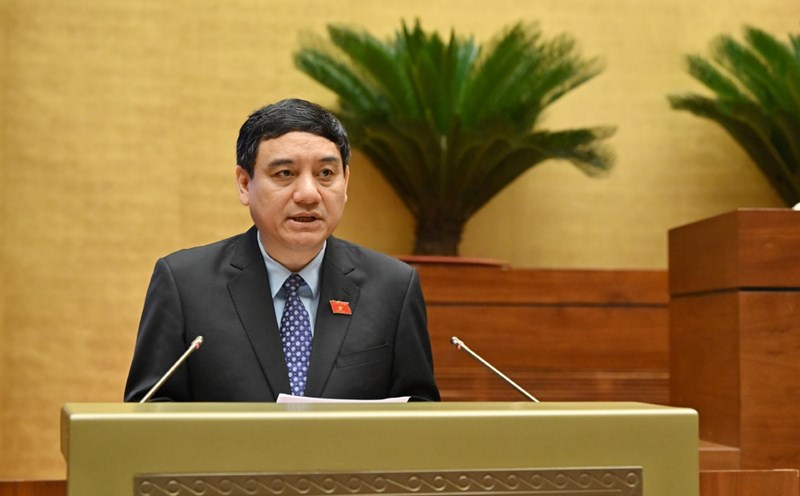What is the basis for determining land prices when not bidding?
On May 21, the National Assembly discussed in groups the draft Resolution on piloting a number of specific mechanisms and policies for the development of social housing (NOXH).
Delegate Tran Thi Dieu Thuy - Vice Chairman of Ho Chi Minh City People's Committee commented on the content related to land allocation without bidding. The new draft law only proposes to create conditions and opportunities for businesses and organizations to invest in building social housing, with an open policy of not going through bidding.
The delegate wondered what basis for determining land prices when not bidding. The delegate said that when businesses want to invest and be allocated land, they will have to organize bidding as a basis for receiving land to build social housing.
Expressing their approval of this regulation, the delegate asked which basis to determine land prices in that area to collect money from businesses. This content needs to be regulated and carefully calculated.
Regarding the conditions for enjoying social housing support policies, the delegate said that the Housing Law stipulates that it is very difficult to enjoy housing policies. Of which, cadres and civil servants of the Office of the National Assembly Delegation are not entitled to receive.
The delegate cited that the law regulating social housing policies is in the low-income group; if a civil servant, he/she does not pay personal income tax. "There is no civil servant in Ho Chi Minh City who does not pay personal income tax. Because they are also entitled to the Resolution of the City People's Council, are entitled to an additional spending mechanism, so they will be subject to personal income tax," said the delegate.
According to the delegate, the demand for social housing for city officials and civil servants is very high. There are 2 points about social housing that the city has not yet resolved: there is no source of housing; the group that benefits will also have difficulty achieving the goal of receiving.
If the resolution is implemented in the future but still maintains the current regulations, it will be difficult for HCMC's officials and civil servants to access. Even in the case of coming here when merging Binh Duong, Ba Ria - Vung Tau into a city, working in a place more than 30 km away but still not because of the constraints in the Housing Law.
From there, the delegate proposed to recalculate the social housing conditions for cadres, civil servants, and workers.
Civil servants living 30km away from work are allowed to buy social housing
The draft resolution stipulates that when merging provinces, policy beneficiaries who already have a house (with their own name) but the house is 30 km from the workplace can buy or rent social housing.
Delegate Duong Tan Quan (Ba Ria - Vung Tau) said that the rigorous regulation of forcing civil servants to live 30 km away from work to buy or rent social housing is inappropriate and unreasonable.
The delegate cited that people in urban areas, going to work for 20-30 km takes 2-3 hours, while in rural areas, traffic conditions are more favorable and they travel faster.
Therefore, the delegate suggested that there should be specific regulations on family circumstances, distinguishing between single people and people who already have families, and proposing flexible distance, instead of distance and travel time between residence and work.
In addition, flexible mechanisms to consider real-life situations such as people with houses but living with many generations, the average area per capita does not ensure the minimum requirements.











